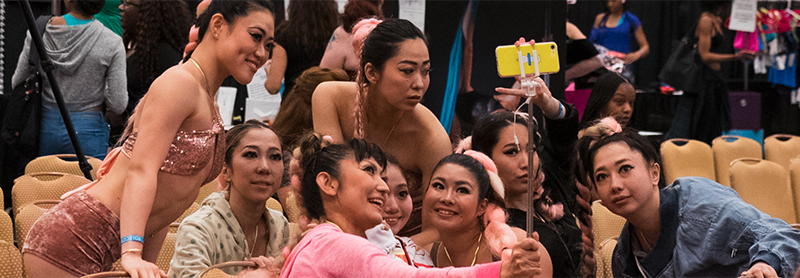Jumping back in time to the very first IPIA webinar (IPIA members can watch the…

What is the difference between licensing and franchising?
Licensing and franchising are both different legal structures you can use to grow your pole-based business. While both of these options take time, they often take less time than having you manage multiple locations of your business and can increase your reach in different locations for different markets, all around the world.
For those who are looking to buy a license or a franchise, you may spend more money initially, but will likely save time to create or improve your business.
It is important to know the differences between these two legal options as one of these two structures may be more beneficial to your business than the other. Also, mislabeling your business expansion incorrectly may incur penalties and fees from state and federal government entities.
What is licensing?
Licensing is a limited legal relationship that allows someone else to use your intellectual property, trademark, technology, methodology, formula, recipe or other specific thing that you control the rights to. In most cases, a license is a granted in a limited capacity for a specific asset to be used in a specific way.
For example, you may license a type of pole class that has a defined methodology and name for other people to teach. Licensees would sign an agreement that specifies what the licensee can and cannot do with the asset. Typically, if someone licenses your pole class type and name, they would not be able to influence or impact your business operations and you would not be able to influence theirs. They would also have to abide by certain rules for how to teach your material such as using a specific name, a specific format, teaching specific moves using your defined names and maybe even using a specific playlist or a patented and specific tool.
Other common licensing agreements in the pole industry include licensing your own image for other uses such as on merchandise or licensing your competition or event structure around the world for others to implement.
A license may be paid for in a lump sum or on an ongoing percentage (sometimes called a royalty) or flat fee basis for as long as the license is in use.
What is franchising?
Franchising is a different type of legal relationship that allows someone else to use and essentially duplicate your business.
Typically, a franchise agreement would allow a franchisee, the person buying into your business, to use your business name and other trademarked assets (like in a license agreement) along with your exact business model and processes. It would also specify how you would control parts of their operation such as where they can set up their franchise and what they can sell. It could also specify what vendors, providers or other tools the franchisee could use as they run their implementation of your business.
A franchise is often paid for by a large upfront fee and then a regular fee or percentage of sales, or both, for the life of the franchise.
In the pole industry, pole studios are the most common type of franchises. This type of business benefits from having a repeatable structure and a repeatable offering (classes, parties, etc.) that can be ported to different locations.
Franchises are governed by very specific laws at both the federal and the state level in the United States. State level laws may be very different so it is important to understand your options before creating or buying into a franchise.
Is one better than the other?
For someone looking to add to their business, licensing a name, style or methodology can be a great way to instantly benefit from the brand recognition of the thing you are licensing. This can also be a very affordable way to add new content to an existing set of offerings for your business.
For someone looking to start a new business—particularly a physical business with a commercial space—franchising can be a great option as it provides all the name recognition of licensing something combined with all the business processes and support. You are literally buying a “business in a box.” This is typically a much more expensive option as you get a lot more support and structure that under a license.
If you value control of your business processes, then a franchise is likely not for you. If you are looking for more support and structure, then a franchise might be a perfect fit.
As a licensor or a franchisor, you can grow your revenue and your brand awareness through having licensees or franchisees.
What are the drawbacks?
For those licensing or franchising their business, there are always risks to your brand. While these methods can be a great way to grow your revenue, a bad situation in one specific instance can reflect poorly on the entire brand and negatively impact revenue or your company’s good will. Good will in this case is a business term that is considered to be an intangible accounting asset which can impact the value of your company.
For those who are looking to license or to franchise, make sure you understand the details of what you are buying and what you are not buying. Also, understand what the termination clauses are in any agreement you sign. These will impact what assets you can and cannot continue to use moving forward after your license or franchise is legally over.
What are the legal details?
If you are trying to create a franchise, start by making sure your processes are definable and repeatable. Can you literally give someone your “business in a box” and have them be successful? You don’t need to be selling a product or service that is unique, but how you do it and the value that you provide to a specific demographic should be unique.
If you are trying to create a license, your business processes are irrelevant. Make sure your intellectual property is trademarked and be very clear about what you are providing under the license as well as any relevant time frames for use.
Always make sure you work with a lawyer to create the appropriate documents and confirm you are compliant.
If you are looking to buy a license or a franchise, you also need a lawyer. Have all documents reviewed, particularly those termination clauses to understand your personal exposure and liability.
Legal requirements and consequences can also change dramatically across international borders. If you are buying into an international license or franchise, REALLY make sure you have a lawyer involved.
Conclusion
Licensing and franchising are great ways to grow your business and help other people develop and grow their own businesses. If you’re getting serious about this—make sure you get a lawyer involved!



